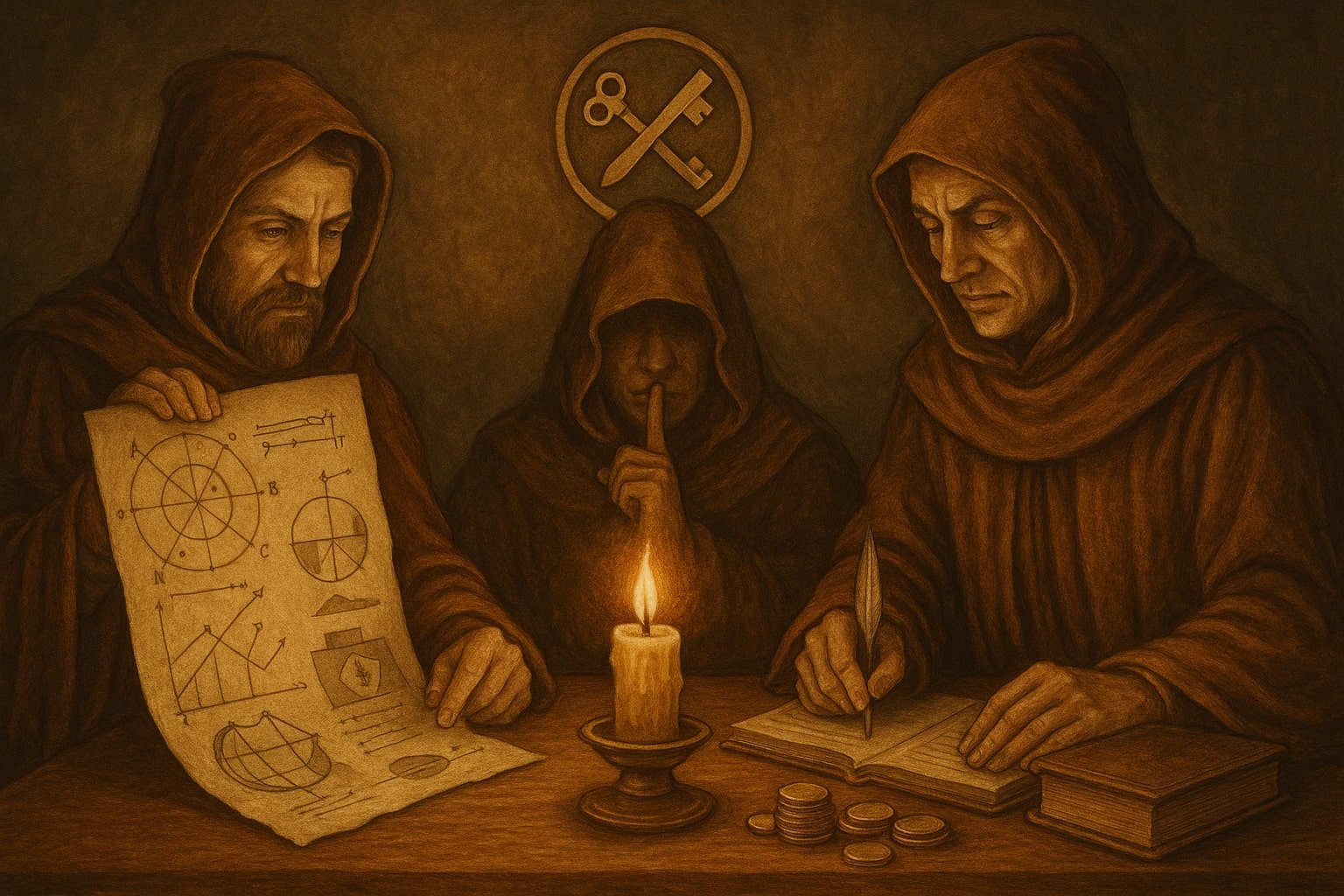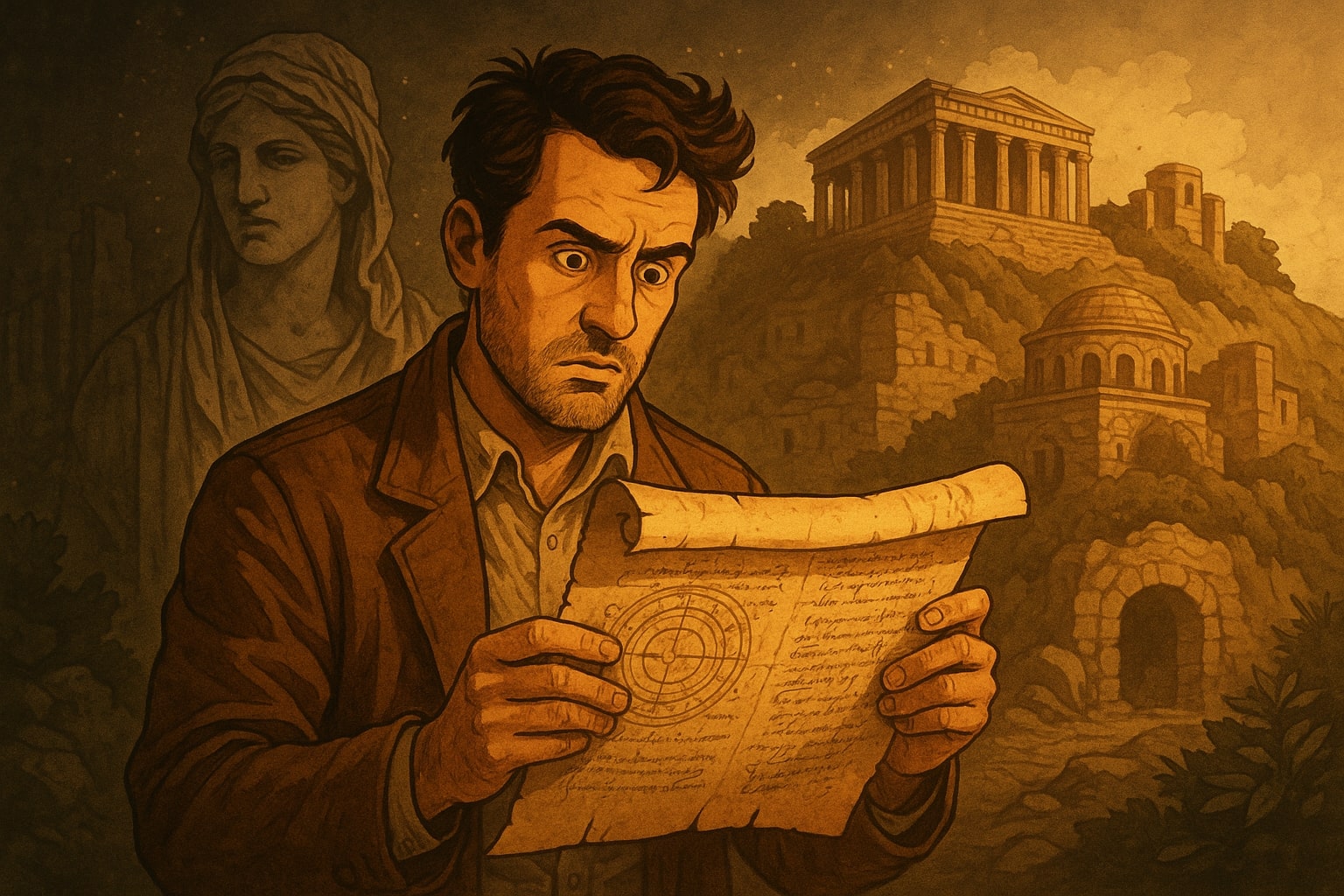Forgotten Histories and Hidden Secrets: The Stories They Don't Teach in School
History textbooks are great at covering the big, dramatic events — wars, revolutions, the rise and fall of empires. But they're terrible at capturing the weird, wonderful, and downright mysterious aspects of human civilization. The stories that make you question everything you thought you knew about the past.
The Lost Library of All Knowledge
Imagine a library so vast it contained the sum of human knowledge — every book, every scientific discovery, every philosophical treatise from the ancient world. The Ancient Library of Alexandria Mysteries explores what we lost when this intellectual treasure trove disappeared.
But here's what makes it even more fascinating: we're not entirely sure what was actually in there. Some accounts suggest they had calculating machines that wouldn't be reinvented for over a thousand years. Others claim they housed geographical knowledge that placed them centuries ahead of their time. The mystery isn't just what happened to the library — it's what knowledge died with it.
Civilizations That Vanished Into Green
The Amazon rainforest isn't just a natural wonder — it's an archaeological gold mine hiding entire civilizations. Lost Civilizations of the Amazon reveals how advanced societies built massive cities, sophisticated agriculture systems, and complex trade networks in what we once thought was "untouched" wilderness.
These weren't small tribal settlements. We're talking about urban centers that supported hundreds of thousands of people, with engineering feats that rival anything built in Europe at the same time. The fact that they disappeared so completely into the jungle is both impressive and haunting.
The Shadow Players of History
While kings and generals get the headlines, secret societies have been pulling strings behind the scenes for millennia. Secret Societies Throughout History investigates the groups that operated in shadows, influencing everything from religious movements to political revolutions.
The fascinating thing about secret societies isn't necessarily their power (which is often exaggerated) but their persistence. Some of these organizations have survived longer than most countries, adapting to changing times while maintaining their core identity and purpose.
Why Hidden Histories Matter
These forgotten stories aren't just entertaining curiosities — they reshape our understanding of human capability and creativity:
They Challenge Linear Progress: The idea that civilization has steadily improved over time falls apart when you discover ancient technologies we couldn't replicate until recently
They Reveal Diversity: Mainstream history often focuses on a narrow slice of human experience, missing the rich variety of how different cultures solved similar problems
They Question Authority: Many "hidden" histories were deliberately suppressed, making us ask who decides what's worth remembering
They Inspire Innovation: Ancient solutions to modern problems often provide fresh perspectives on current challenges
The Amazon's Technological Secrets
The Amazon civilizations developed agricultural techniques that are only now being recognized as revolutionary. Terra preta (Amazonian dark earth) is a soil enhancement method that created farmland so fertile it's still productive 500+ years after abandonment. Modern agricultural scientists are studying these techniques to develop sustainable farming practices.
They also created extensive trade networks that connected the Pacific and Atlantic coasts, moving goods across thousands of miles of challenging terrain. Their engineering included sophisticated water management systems that controlled flooding and drought — skills that would be valuable in our climate-changed world.
The Library's Lost Technologies
The Library of Alexandria wasn't just a repository of scrolls — it was a research institution where scholars conducted experiments and developed new technologies. Some accounts describe:
- Mechanical computers for astronomical calculations
- Steam-powered devices (centuries before the Industrial Revolution)
- Advanced metallurgy and chemistry
- Sophisticated medical procedures
- Geographical knowledge suggesting global exploration
Whether all these accounts are accurate is debatable, but the fact that such advanced concepts were even conceivable suggests a level of intellectual sophistication that challenges our assumptions about ancient capabilities.
Secret Societies as Historical Drivers

Secret societies often formed around shared interests that couldn't be pursued openly:
Scientific Knowledge: When certain types of research were considered heretical or dangerous
Political Reform: When open opposition to ruling powers was impossible
Economic Innovation: When new financial instruments or trade practices needed protection from established interests
Cultural Preservation: When traditional knowledge was threatened by conquering cultures
Many innovations we take for granted — from banking systems to scientific methods — were developed and protected by secretive groups before becoming mainstream.
The Problem with "Official" History
Official history is often written by winners, and winners tend to emphasize their own contributions while minimizing others'. This creates blind spots:
- Technologies developed by "primitive" cultures get overlooked
- Women's contributions are systematically underreported
- Non-European innovations are attributed to European "discovery"
- Failed experiments and abandoned knowledge disappear entirely
Rediscovering Lost Knowledge
Modern archaeology and technology are constantly revealing how much we don't know about the past:
LiDAR Technology: Reveals massive structures hidden under jungle canopy
Satellite Imagery: Shows ancient road networks and city layouts invisible from ground level
DNA Analysis: Rewrites migration patterns and cultural connections
Chemical Analysis: Reveals ancient diets, trade goods, and manufacturing techniques
Digital Reconstruction: Brings ruined buildings and lost cities back to virtual life
The Danger of Lost Knowledge
When civilizations disappear, their accumulated knowledge often goes with them. This isn't just historical loss — it's practical loss. The Amazon civilizations had sustainable solutions to deforestation, soil depletion, and biodiversity management. The Library of Alexandria housed mathematical and scientific insights that could have accelerated human progress by centuries.
We're currently facing similar risks. Climate change threatens to destroy archaeological sites before we can study them. Political instability endangers libraries and museums. Digital storage seems permanent but is actually more fragile than stone tablets.
Learning from Forgotten Histories
These hidden stories teach us valuable lessons:
Humility: Our current civilization isn't the pinnacle of human achievement — just the latest attempt
Diversity: There are many ways to organize society, and some "primitive" solutions might be superior to modern ones
Fragility: Even the most advanced civilizations can disappear, taking their knowledge with them
Innovation: Human creativity and problem-solving ability have been consistent throughout history
The Continuing Mystery
Perhaps the most exciting aspect of hidden histories is how much we still don't know. Every archaeological dig reveals new puzzles. Every decoded text challenges previous assumptions. Every technological breakthrough allows us to see the past in new ways.
We're living in a golden age of historical discovery, constantly rewriting what we thought we knew about human civilization. The stories they don't teach in school aren't just interesting — they're essential for understanding who we are and where we came from.
The past isn't a closed book — it's an ongoing investigation, and the most fascinating chapters are still being discovered.
